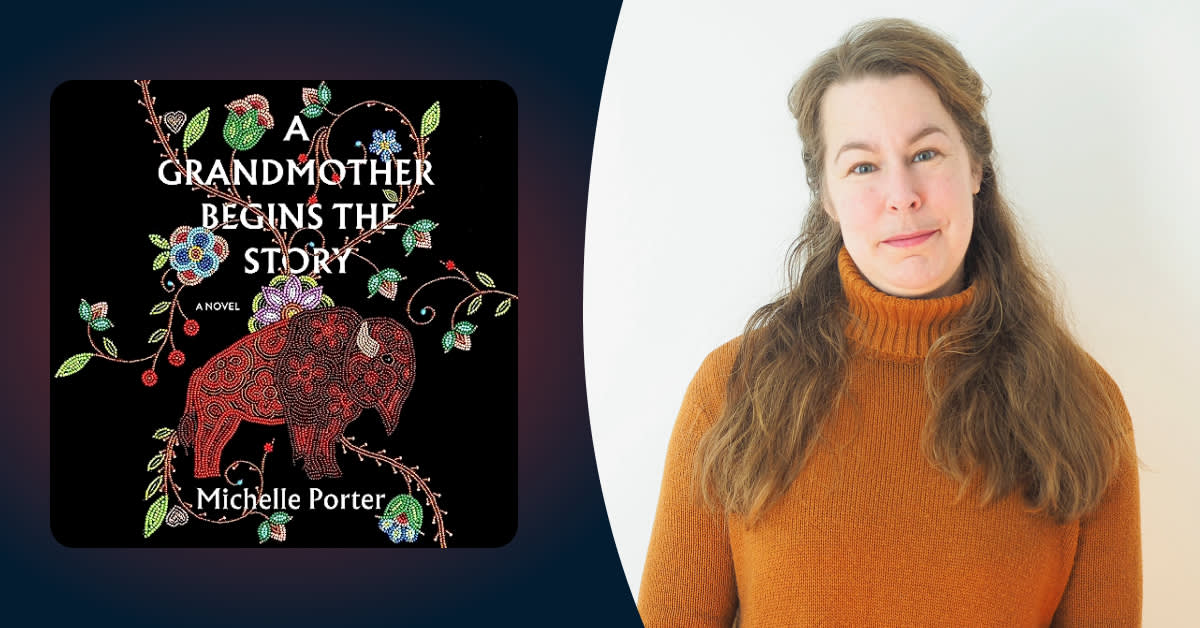With a story that is partially shared from a sweet baby bison's perspective, Métis poet, memoirist, and journalist Michelle Porter's A Grandmother Begins the Story is a testament to the living, breathing process of passing stories and songs along across the years. A stirring ode to the rhythms of generational exchange, Porter's debut novel shimmers with a cast of Indigenous Canadian performers and brilliant musical interludes featuring early recordings from her own great-grandfather, grandmother, and great-aunt.
We spoke with Porter about how her Métis background informed the writing process, the shift from nonfic to fiction, and what inspired the fascinating shifting viewpoints of her novel.
Haley Hill: Prior to the release of A Grandmother Begins the Story, you had published several works of poetry and nonfiction as well as Scratching River, a memoir. What inspired you to write your debut novel?
Michelle Porter: My mother inspired me. After writing Scratching River, about my brother and an ancestor, and Approaching Fire, which focuses on my grandfather, I wanted to explore my grandmother’s life, and my mother said, “Why don’t you do it in fiction?” So I did. My mother reminded me that I always wrote in fiction growing up and that I had more freedom in fiction to tell the stories I wanted to tell.
From the earliest stages of inspiration, did you always know that this story would include a character written from a bison’s perspective?
The stories of Geneviève and the bison calf, Dee, began unraveling in my mind at the same time. Their themes and life experiences echo each other. I wanted to write a story that takes the listener closer toward an “all my relations” ethic. By braiding the bison stories and human stories together, along with the grassland, two dogs, and even a car, I was getting the reader as close to non-hierarchical relationships between human and non-human as I could.
How did the rich oral storytelling traditions as well as musical nature of Métis culture impact the process of bringing this novel to life in audio?
When Métis writer and storyteller Warren Cariou said this novel is “a work of vocal magic,” he recognized that the writing style I chose is directly part of our oral traditions. In honor of this, the audiobook producers worked with a large, nearly all-Indigenous cast of voices, with a focus on performers from the Métis Nations, which show off the beauty of the book’s orality. What some listeners might not know right off is that the musical interludes between characters are from the earliest known recordings of traditional Métis music from the 1930s and features my great-grandfather, grandmother, and great-aunt. I’m so proud that their music became part of the audiobook.
Author photo by Bojan Fürst







